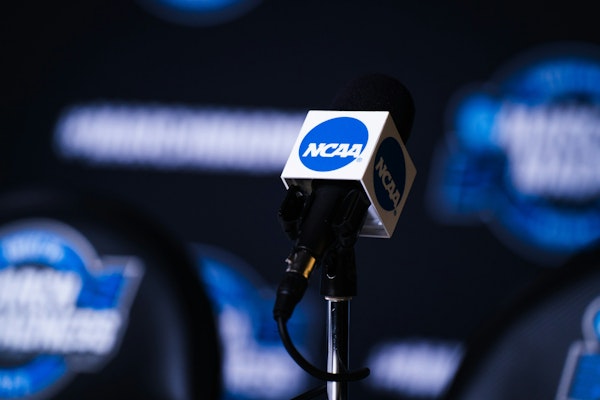
Water Damage, Theft Top List of Small-Business Insurance Claims in Hartford Report
The Hartford’s analysis of 1 million small-business policies shows rising costs for fire, injury, and water damage claims, with risk mitigation strategies gaining traction.
December 11, 2025
Fraud
Liability
Property
Risk Management

Why Space Debris May Be the Next Uninsurable Global Threat
China’s emergency evacuation from its Tiangong space station due to a damaged capsule window shows how even microscopic debris is becoming a high-cost, high-risk hazard with no clear liability path.
December 5, 2025
Catastrophe
Liability
Technology

Thanksgiving Insurance Claims Spike From Fires, Falls, and Drunk Driving
Thanksgiving ranks as a peak claims day for fire, auto, and injury incidents. Adjusters should be prepared for post-holiday surges in kitchen fire reports, liability questions, and alcohol-related crashes.
November 24, 2025
Auto
Insurance Industry
Liability
Property

Insurers Push to Cap Liability for AI System Failures
Three leading insurers—AIG, Great American, and WR Berkley—are pursuing regulatory approval to limit their liability for claims tied to artificial intelligence technologies, a move that could reshape the risk landscape for businesses deploying AI systems.
November 24, 2025
Legislation & Regulation
Liability
Risk Management
Technology
Underwriting

Claims Severity Adds Over $280B to Liability Insurance Losses Since 2015
A new Triple-I and CAS study links rising loss costs in liability lines to legal system abuse and inflation, not claim frequency.
November 11, 2025
Auto
Catastrophe
Liability
Litigation
Property

Unlocking Hidden Liability in Subrogation Starts at First Notice of Loss
Early investigations and strategic partnerships help uncover third-party liability and boost subrogation success. Learn what top adjusters and legal experts recommend.
November 6, 2025
Insurance Industry
Liability
Litigation
Subrogation

Truck Driver Injury Suit Against Non-Subscribing Employer Not Subject to Arbitration
A Texas appellate court sided with a commercial driver, finding he was exempt from arbitration under the Federal Arbitration Act’s transportation worker exception.
November 5, 2025
Liability
Litigation
Workers' Compensation
Texas

Tariff Fallout Sparks First Securities Lawsuit Against Dow as D&O Insurance Demand Surges
Dow Inc. investors allege misleading tariff disclosures in a case signaling rising litigation risks and a spike in D&O coverage interest.
November 5, 2025
Insurance Industry
Legislation & Regulation
Liability
Risk Management

Mental Health Crisis Escalates Among Construction Workers, New Survey Finds
A new industry-wide survey reveals sharp increases in anxiety, depression, substance misuse, and missed work due to mental health—raising concerns for insurers and employers alike.
November 5, 2025
Liability
Life & Health
Workers' Compensation

Verisk Projects Up to $4.2B in Insured Losses from Hurricane Melissa in Jamaica
With insurance take-up rates below 20%, Hurricane Melissa’s record-setting impact on Jamaica exposes significant coverage gaps. Verisk and Aon warn of rising insured and economic losses.
November 3, 2025
Catastrophe
Insurance Industry
Liability
Property
Risk Management

Declining Public Trust in Healthcare Challenges Medical Malpractice Defense
Distrust in hospitals and physicians is reshaping jury perceptions, complicating healthcare litigation, and elevating risk for claims professionals.
November 3, 2025
Liability
Life & Health
Litigation
Risk Management

Lab Monkeys Escape After Mississippi Crash Raises Biohazard Concerns
After a truck crash in Mississippi released rhesus macaques from Tulane’s research program, conflicting reports and a lack of transparency raise public health and ethical concerns.
November 3, 2025
Catastrophe
Legislation & Regulation
Liability
Life & Health
Weird
Mississippi

Caterpillar’s AI Push Fuels New Insurance Risks in Autonomous Equipment
As Caterpillar evolves into a tech-driven service provider, insurers must rethink policies for autonomous systems, cross-border operations, and software-based liabilities.
October 29, 2025
Legislation & Regulation
Liability
Litigation
Risk Management
Technology

$18 Million Verdict: NCAA Found Negligent in Former College Player’s Head-Injury Suit
A jury in Orangeburg County, South Carolina awarded $18 million to former college football player Robert Geathers and his wife Debra after finding that the NCAA was negligent in failing to warn him of the long-term effects of repeated head trauma.
October 29, 2025
Insurance Industry
Liability
Life & Health
Risk Management
South Carolina

Why Smart Witnesses Fail in Depositions and How to Fix It
Witnesses don’t fail because they’re unprepared but because their brains default to socially learned habits that don’t work under legal pressure. Defense teams can rewire those instincts for better outcomes.
October 27, 2025
Insurance Industry
Liability
Litigation





